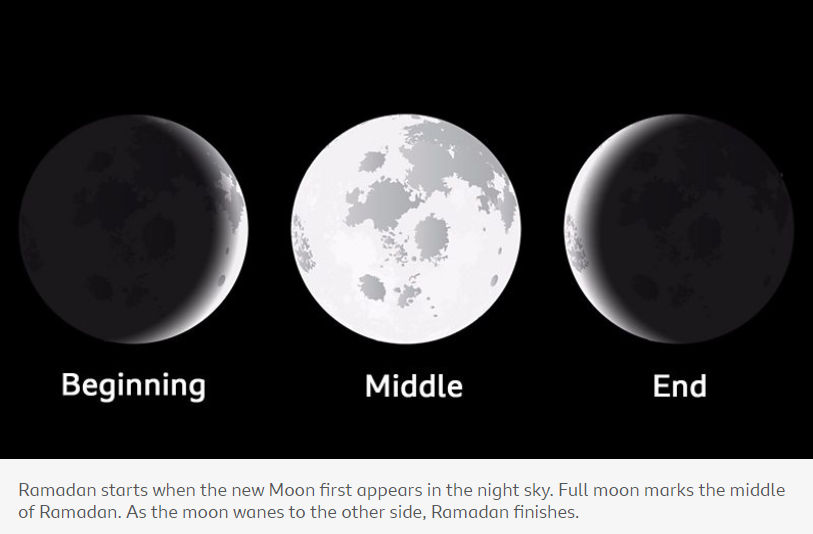
Post by Maariya, Student Experience Ambassador
Ramadan is the 9th month of the Islamic (Lunar) calendar and is one of the five pillars of Islam. The month begins when the new moon is spotted and ends when the next new moon is spotted, meaning it lasts approximately 28-30 days. In Islam, the night comes before the day, therefore this year Ramadan falls on the evening of the 9th of March and could end on either the 9th, 10th or 11th of April. It is also the month in which the Holy Qur’an was revealed to the Prophet Muhammed (PBUH), on a night known as Laylatul Qadar (‘The Night of Power’).

Ramadan is a sacred month in Islam. It involves fasting from dawn to sunset, an extra night prayer (tarawih), increased worship and devotion as well as self-reflection and charity. The breakfast before sunrise is called Suhoor and the meal that the fast is broken with is called Iftaar. Traditionally, the fast is broken by eating an odd number of dates and with a glass of water before going on to eat a fulfilling meal. There are exceptions for those who cannot fast including: children, pregnant women, menstruating women, the elderly, those who are ill or those who are travelling. One can also break their fast in a health emergency. Many believe that Ramadan only involves of refraining from food and drink, but it is about much more than that. It is a month in which we better ourselves and try to be the best version of ourselves we can. We fast to become closer to God, remind ourselves of the suffering of those less fortunate than us and teach ourselves discipline and empathy. We also try to refrain from immoral behaviour such as lying, cheating.
The last ten nights of Ramadan are especially important as it is believed that the Qur’an was revealed on one of these nights, although there is some indication that it was revealed on an odd night (21st, 23rd, 25th, 27th or 29th) it is important to treat all these nights with equal importance in order to reap the rewards. Laylatul Qadr is also believed to be the night which Allah shows great mercy and forgiveness. In the Quran it is mentioned that “The Night of Decree is better than a thousand months,” (Qur’an, 97:3). This means that any good deed performed on this night will be as if that deed has been performed for more than 1000 months. The Prophet (peace be upon him) also said “Whoever prays on Laylatul Qadr out of faith and sincerity, shall have all their past sins forgiven” (Hadith, Bukhari, and Muslim). The rewards of giving charity on these nights are also multiplied by 70 times.

Overall, the month of Ramadan has extreme religious and spiritual significance in Islam and is observed by Muslims all over the world.
